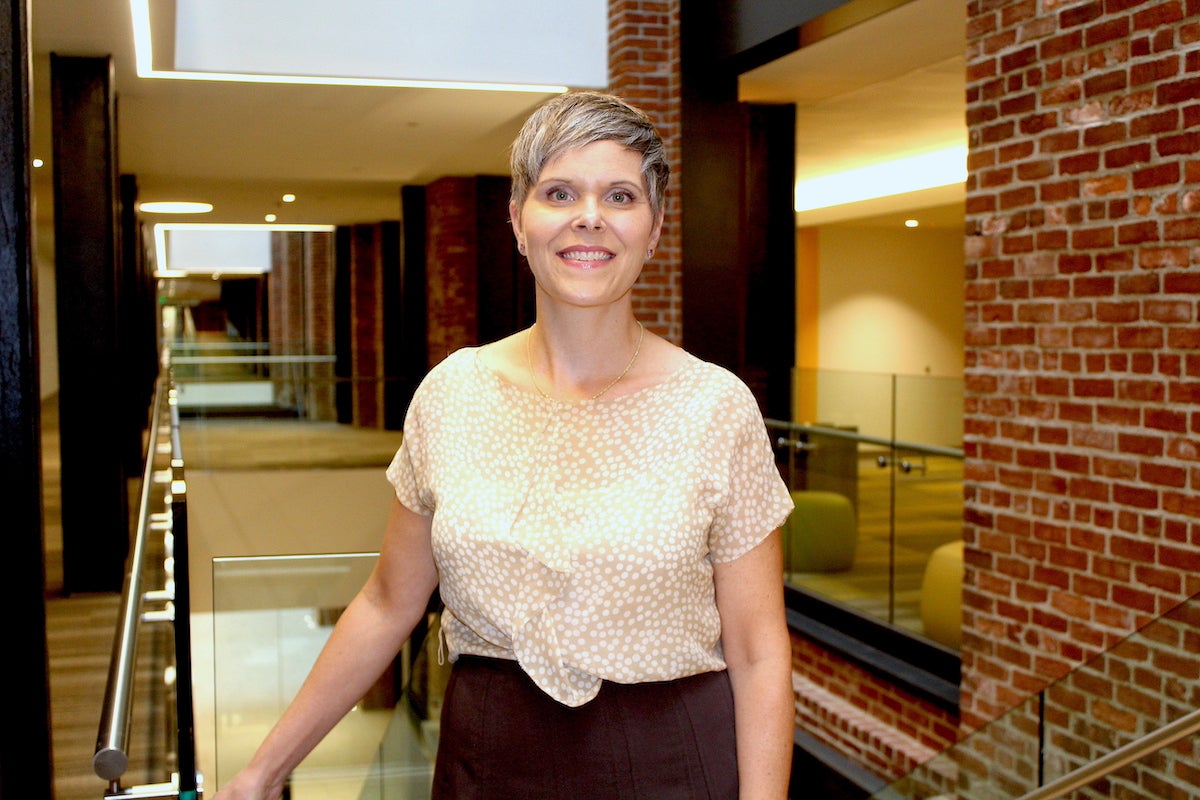Three more URI College of Nursing students have joined Ph.D. student Emily Haynes as recipients of Cynthia & Thomas Sculco Graduate Nursing Research scholarships, which cover much of their expenses, allowing them to focus exclusively on their research and studies.
Today we take a look at one of the students benefitting from the gift from alumnus Cynthia Sculco ’65 and her husband Thomas, and the research she has planned.
Jane Lazar Tucker
Hometown: Framingham, MA
Education track: PhD
Previous education: MS, public health, Boston University; BSN, Western Governor’s University; BS, psychology, McGill University, Montreal, Canada.
Experience: Lactation consultant at Brigham & Women’s Hospital; former labor and delivery nurse.
Research: Tucker’s research will focus on breastfeeding, with a public health perspective. She aims to increase both the incidence of breastfeeding, particularly in certain populations in which the practice is not popular, and the length of time a mother breast feeds her baby.
Breastfeeding has obvious benefits to the infant, providing a natural, nutritionally perfect food for a newborn, which passes on many immunities from mother to child, benefits speech and development of the child, and helps prevent childhood obesity, among other benefits. Tucker recommends exclusive breastfeeding for at least the first six months, with breast milk continuing to be the main source of nutrition for at least a year. The practice also benefits mothers, “empowering them in their new parenting role. Breastfeeding is a really important tool, something that can lead to long-term parental confidence.”
Despite the obvious benefits, many mothers do not breastfeed, sometimes through personal choice, but often because of societal influences. In some populations, breastfeeding is not traditional or culturally acceptable. Even in populations that understand the benefits of breastfeeding, mothers often face community backlash for simply feeding their children.
“In our culture, breastfeeding is still not particularly acceptable. Women should be able to feed their babies wherever they want, but that’s not a given,” Tucker said. “Women are shamed for breastfeeding in public, or for breastfeeding too long, as if it is somehow a shameful thing. Women can breastfeed for two years, two and a half years; it’s really up to them. For the nutritional benefits, all the evidence is there for breastfeeding being the primary source of nutrition.”

